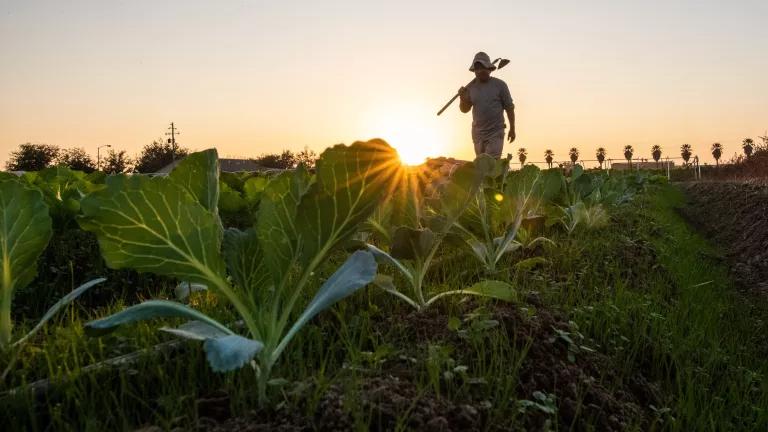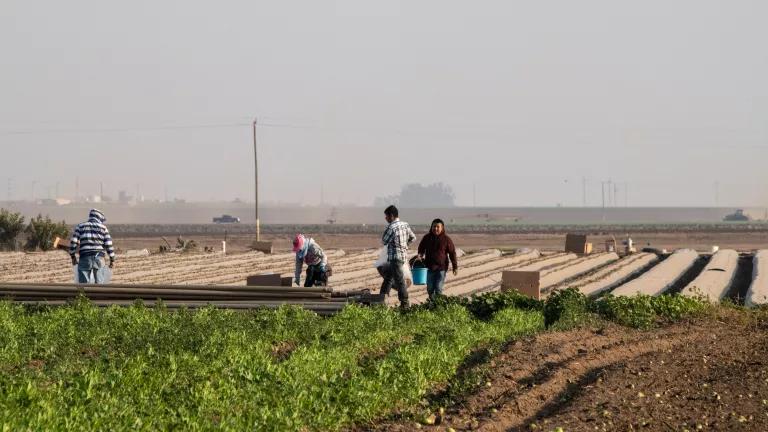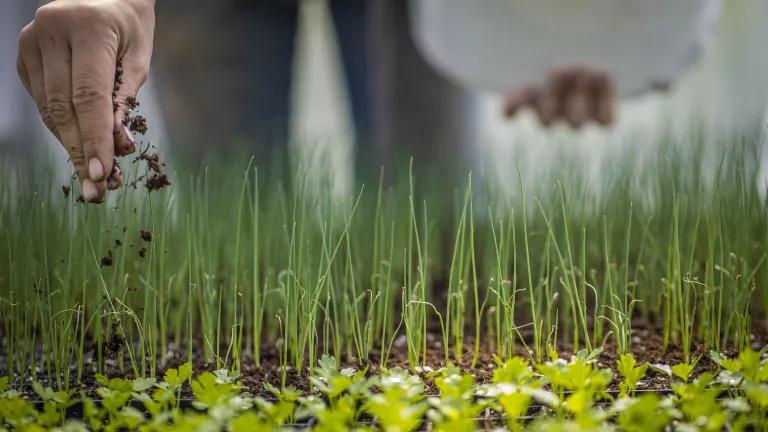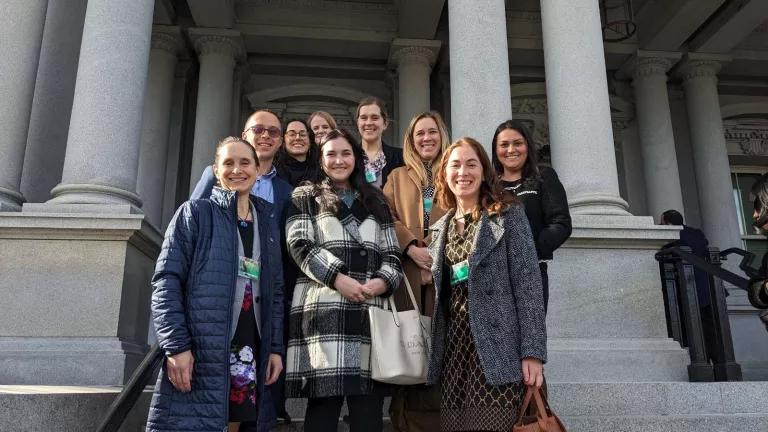Grow Organic: The Climate, Health, and Economic Case for Expanding Organic Agriculture
Organic agriculture holds significant and largely untapped potential to address multiple crises facing our society

Co-authored with: Kathleen Merrigan, Estève G. Giraud, and Nadia El-Hage Scialabba from Swette Center for Sustainable Food Systems at Arizona State University, and Sarah Aird from Californians for Pesticide Reform
Our food system is in peril, facing increasing instability from climate change, widespread food insecurity, and continued reliance on agricultural chemicals that threaten health and the environment. In contrast to conventional agriculture, organic agriculture holds significant and largely untapped potential to address multiple crises facing our society, including climate change, health, and economic struggles.
NRDC’s new report, Grow Organic: The Climate, Health, and Economic Case for Expanding Organic Agriculture, published in partnership with the Swette Center for Sustainable Food Systems at Arizona State University and Californians for Pesticide Reform, distills the latest scientific research on the wide-reaching benefits of organic farming systems, and offers insights from more than a dozen organic farmers and ranchers around the country working at every scale of organic. It also explains the pitfalls of our current agricultural system and provides concrete policy recommendations on how to maximize the benefits of organic.
Public policies that support expansion of organic farming and ranching across America—including substantial investments in the next Farm Bill—can unlock this potential and deliver a critical triple win for our climate future, the health of farmworkers and consumers, and prosperity in farming communities.
Related Content

Grow Organic Campaign Congressional Briefing

Organic Agriculture Helps Solve Climate Change

New Report: Unlocking the Potential of Organic Agriculture





